Cornea Transplant Surgery In Kalyan
We provides advanced, compassionate care to restore vision and improve the quality of life for patients with corneal conditions.
CORNEA
Cornea is the clear front surface of the eye. It lies right in front of the iris and pupil, and it allows light to enter the eye.All of the following facilities are available at our centre.
Cornea Transplant Surgery in Kalyan: Restoring Vision with Advanced Care
ensuring that the surgery is performed with the highest level of precision. The pre-surgery consultation involves a thorough assessment of the patient’s vision and medical history, allowing the cornea doctor to determine whether corneal transplant surgery is the best course of action. This careful planning helps minimize the risks and enhances the chances of a successful recovery.
One of the key factors that contribute to the success of cornea surgery in Kalyan is the availability of specialized surgical procedures. Depending on the severity of the corneal damage, the surgeon may perform a full-thickness transplant (penetrating keratoplasty) or a partial-thickness transplant (lamellar keratoplasty). Lamellar procedures have gained popularity in recent years due to their ability to target only the damaged layers of the cornea, allowing for faster healing and fewer complications.
Recovery after cornea transplant surgery typically involves a period of close monitoring and follow-up visits to the cornea specialist. Patients may need to use prescribed eye drops and avoid certain activities during the healing process. Regular check-ups ensure that the transplanted cornea is functioning well and that the eye is healing properly. The success rate of cornea transplant surgery in Kalyan is high, with most patients experiencing significant improvements in vision after the procedure.
Choosing a cornea doctor who has expertise in the latest techniques and access to cutting-edge technologies is essential for ensuring the best possible outcome. Many renowned hospitals and eye clinics in Kalyan provide cornea transplant services, offering patients access to qualified specialists and advanced treatment options. With the support of a skilled cornea doctor, individuals who have lost their vision due to corneal conditions can look forward to a brighter, clearer future.
In conclusion, cornea transplant surgery in Kalyan offers hope to those affected by corneal blindness. By consulting with a qualified cornea specialist and undergoing cornea surgery in Kalyan, patients can regain their vision and improve their overall well-being. Whether through penetrating keratoplasty or the more advanced lamellar procedures, corneal transplantation continues to be a reliable solution for restoring sight and enhancing the quality of life for those in need.
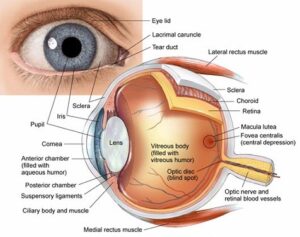
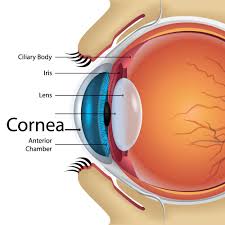
Corneal Transplantation
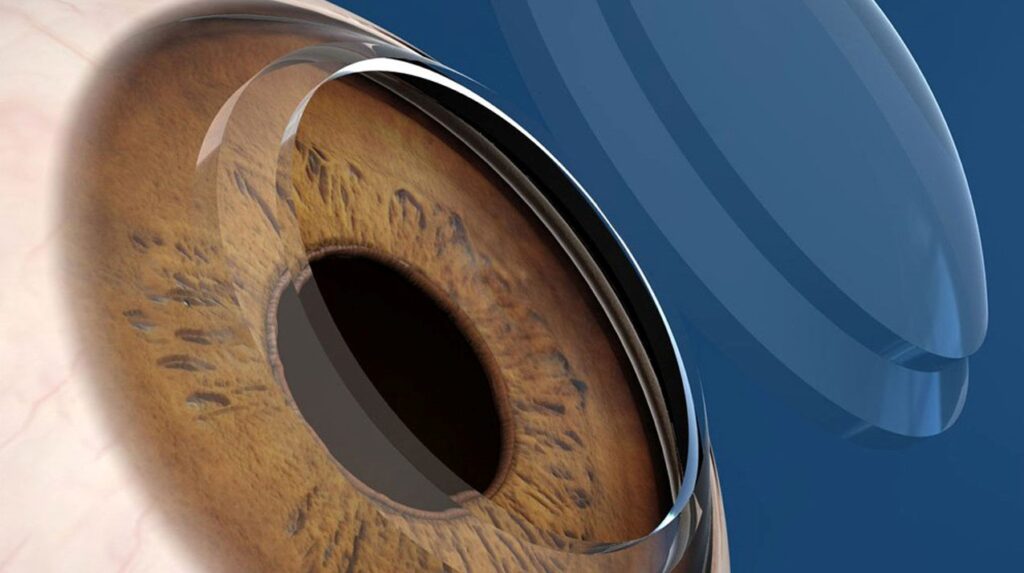
- A cornea transplant is an invasive procedure that replaces affected part of the cornea with a healthy donor corneal tissue. It can restore vision, reduce discomfort and enhance appearance of a cornea that has been impaired or been diseased.
Treatment for Keratoconus
Keratoconus is a disease in which cornea starts expanding into a conical shape. This eye syndrome is progressive and can’t be reversed. When diagnosed early, C3R therapy helps in stabilizing it and in advanced stages, corneal transplantation techniques are helpful.
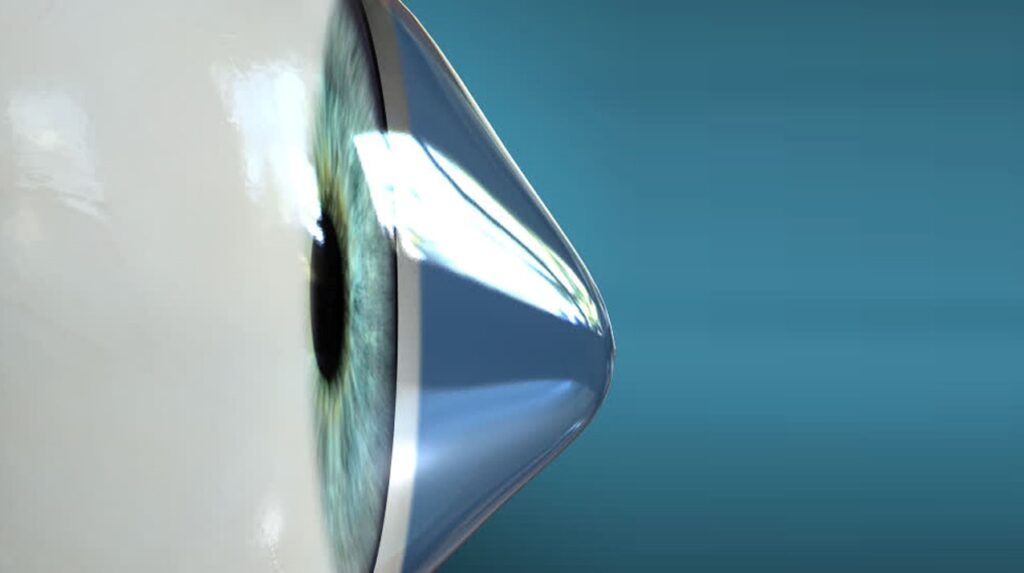
Symptoms:
If you have keratoconus, you may observe:



Poor Vision
Light Sensitivity
Blurry Vision

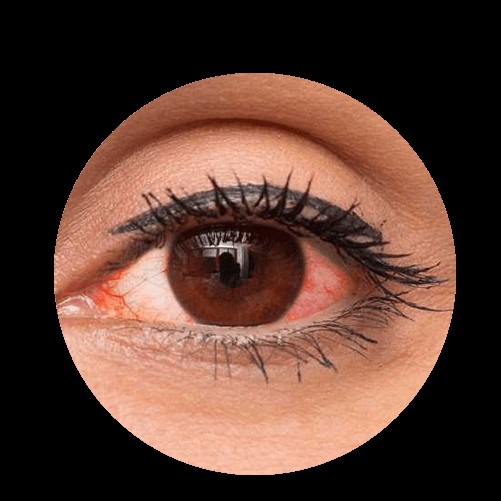

Distorted Vision
Irritated Eyes
Changing Prescription
Five Amazing Facts About Cornea<?center> - No Blood Vessels:
- The cornea is unique because it does not contain any blood vessels. It gets its nutrients through tears and the aqueous humor (the fluid in the eye). This lack of blood vessels helps the cornea remain clear and transparent, allowing light to pass through freely.
- Most Sensitive Part of the Body:
- The cornea has more nerve endings than any other part of the body, making it extremely sensitive. This sensitivity helps protect the eye by triggering reflexes like blinking when something comes into contact with the eye, such as dust or an eyelash.
- Self-Healing Power:
- The cornea has an incredible ability to heal itself. Small scratches or minor injuries to the outer layer (epithelium) can heal within 24 to 48 hours. However, deeper injuries to the cornea may require medical intervention, such as a corneal transplant.
- Critical for Focused Vision:
- The cornea is responsible for about 65-75% of the eye’s focusing power. Its curvature bends light as it enters the eye, and together with the lens, the cornea helps focus light directly onto the retina for clear vision.
- Corneal Transplants Are Life-Changing:
- A corneal transplant can restore vision in people suffering from corneal diseases or injuries. This type of surgery, known as keratoplasty, is one of the most successful and commonly performed transplants worldwide, with over 100,000 corneal transplants done annually.
Frequently Asked Question
-
What is the role of the cornea in vision?
The cornea is the transparent outer layer of the eye that plays a crucial role in focusing light. It bends (refracts) incoming light and works with the lens to direct it onto the retina, ensuring clear vision.
-
What are the operating hours of Radhakrishna Netralay Eye Hospital in Kalyan?
Radhakrishna Netralay Eye Hospital in Kalyan operates from Monday to Saturday, 10 AM to 7 PM.
-
When is a corneal transplant necessary?
A corneal transplant, or keratoplasty, may be needed when the cornea becomes severely damaged or diseased, affecting vision. Conditions like scarring, thinning, or degeneration of the cornea may require transplant surgery to restore vision.
-
What is the recovery process after a cornea transplant at Radhakrishna Netralay?
Recovery after a corneal transplant involves regular follow-up visits to ensure proper healing. Patients typically experience improved vision within a few months, but full recovery can take up to a year. Anti-rejection medications are essential to ensure the success of the transplant.
-
How can I prevent corneal damage?
Protect your eyes from injury by wearing protective eyewear, especially during activities like sports or working with tools. Avoid excessive UV exposure by wearing sunglasses with UV protection, and maintain regular eye check-ups to detect early signs of corneal disease or damage.
-
Can the cornea heal on its own after a minor injury?
Yes, the cornea has a remarkable ability to heal itself, especially the outer layer (epithelium). Small scratches or injuries typically heal within a few days to a week. However, deeper injuries may require medical treatment or intervention from a cornea specialist.
-
What are the symptoms of corneal diseases?
Common symptoms of corneal diseases include blurred vision, eye pain, redness, increased sensitivity to light, and frequent tearing. If you experience any of these symptoms, it’s important to consult a cornea doctor at Radhakrishna Netralay for an accurate diagnosis and appropriate treatment.

